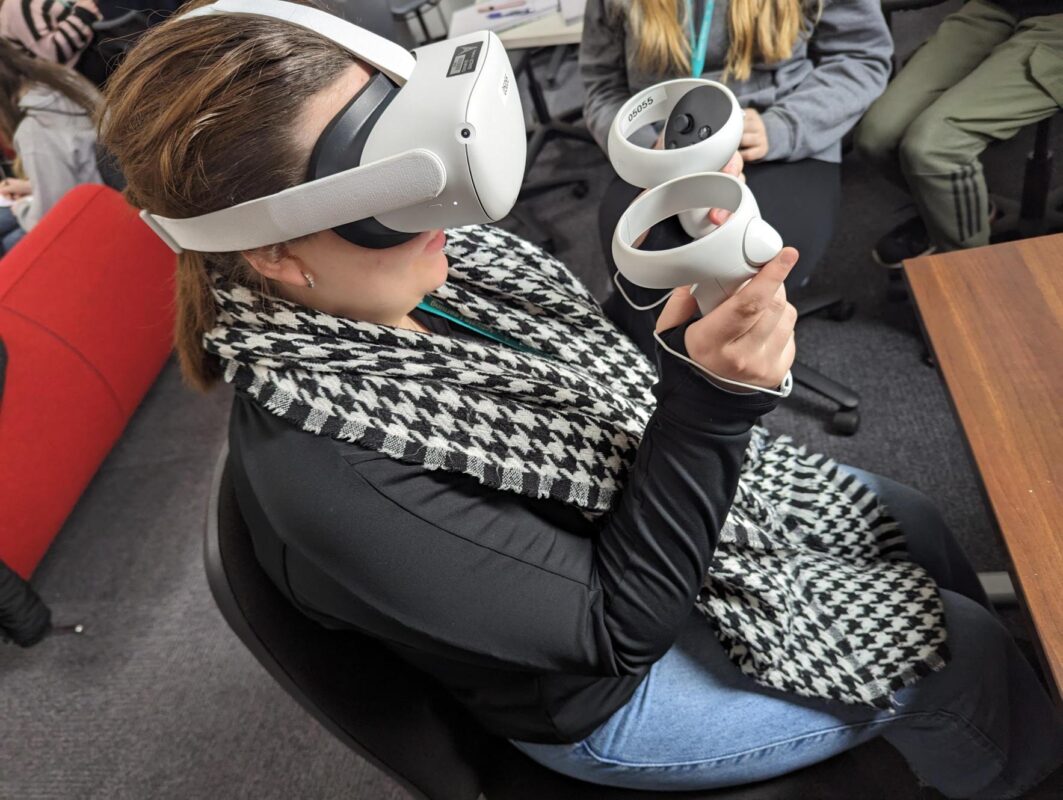News: Students’ pioneering research brings sense of place to the fore in UK race to cut carbon

Students at the University of Chester are celebrating publication success for their pioneering research on reducing carbon emissions and creating opportunities for communities.
Eleanor Lewis and Reace Edwards have worked together on the research which highlights the importance of geography, collaboration, education, training and skills for UK industries to move away from fossil fuels as a power source and achieve net zero – where greenhouse gases going into the atmosphere are balanced by their removal – by 2050.
Eleanor, the paper’s main author, and Reace are both studying for a PhD (Doctorate of Philosophy) – a degree at the highest academic level – in the Faculty of Science, Business and Enterprise, and are passionate about supporting policy and industry to deliver social and economic benefits in industrialised locations.
Making a mark at the forefront of the UK Industrial Decarbonisation Challenge (IDC), their article has been published in the latest edition of the peer-reviewed journal Geography, which profiles current research in geography and geographical education. The piece, Delivering the IDC: geographical considerations for decarbonisation, co-authored with Professor Joseph Howe, exemplifies how important a sense of place is for sustainable energy transitions.
The UK Government has identified six industrial locations with the highest concentrations of carbon dioxide production – labelled industrial clusters – to be part of the IDC. To achieve net zero by 2050, the challenge is for heavy industry to transition to carbon capture and storage and low-carbon hydrogen energy sources.
For Eleanor, the paper represents early success, being published just 18 months into her PhD at the University of Chester Business School, upgraded from MPhil (Master of Philosophy), looking at the skills supply chain in industrial decarbonisation.
Eleanor, who also works as a research assistant, said:
“Being at this stage in my PhD, and with my official upgrade, I’m still overwhelmed that this has happened so early on – and I couldn’t have done it without Reace.
“As more attention is given to energy transitions, I hope that my research will support policy and industry in realising that skills are both a benefit and a barrier. In realising that, the opportunities of industrial decarbonisation in areas of deprivation should be capitalised on for the communities in those localities – in the form of job opportunities and reskill or upskill opportunities to transform the socio-economics of industrialised locations and enable just transitions.”
This is the third publication for Reace, a Chemical Engineering student, who is nearing the end of her PhD and research into the decarbonising of gas through a hydrogen network, which has been funded by Costain.
Reace said: “It was great to be involved with the publication of another research article that recognises the importance that industrial clusters could have in achieving UK net zero targets.”
Faculty of Science, Business and Enterprise colleagues are thrilled to see the researchers’ hard work being recognised in this way. Dean of the University of Chester Business School, Associate Professor Kirstie Simpson, shares how this is an important part of faculty research in this area: “We are very proud of the contribution we are making to knowledge exchange in the area of industrial decarbonisation and skills. The Business School has been the lead academic contributor in developing industrial understanding of the workforce requirements and skills needs for industrial decarbonisation in the North West and nationally.
“Reports we have produced for HyNet, Net Zero North West and the Industrial Decarbonisation Research and Innovation Centre (IDRIC) echo the sense of place that Eleanor and Reace describe in their article, and we congratulate them on this publication, bringing further insights to this pioneering area of research and practice. We are keen to ensure that our work enables transformation for those communities.”
Professor Julieanna Powell-Turner, Associate Dean for Research and Innovation in the Faculty added:
“Eleanor and Reace’s work is playing a crucial role in the North West industrial decarbonisation skills agenda which is the next vital step for tackling climate change and delivering net zero.
“As we know, we cannot deliver net zero without the right skills to decarbonise industry, and it is here where Eleanor and Reace are developing a socio-economic framework to address the skills challenge, whilst examining ways to work with industry and people, and, maintaining the environment. This is a novel approach to the North West energy skills landscape in addressing industrial decarbonisation, and Eleanor, Reace, and the University of Chester are at the forefront of this agenda.”
Reace has enjoyed the chance to explore the world of political sciences and how that inter-relates with her field of engineering, and is excited to see the methods the UK adopts to meet its 2050 carbon emissions target.
Eleanor hopes to complete her PhD by early 2025, with future plans to work in oil, gas or manufacturing and help deliver change in heavy industry. “These big organisations, particularly those in the UK, will have to decarbonise by 2050 and I want to be part of driving that change from the inside,” she added.
The full article can be read here.
To find out more about some of the University’s research and study opportunities please visit here.












Responses